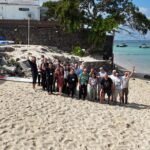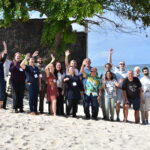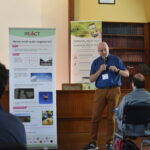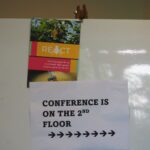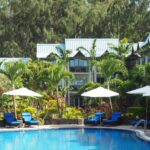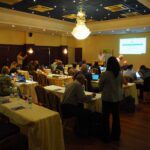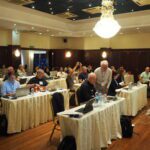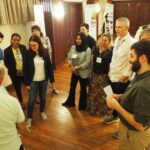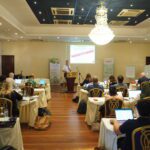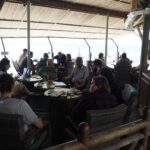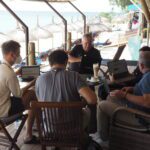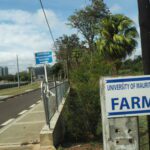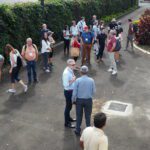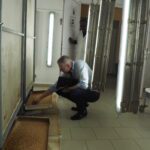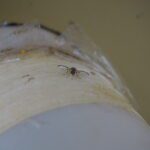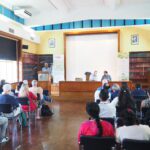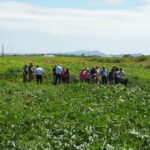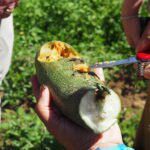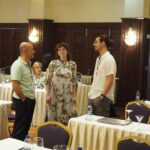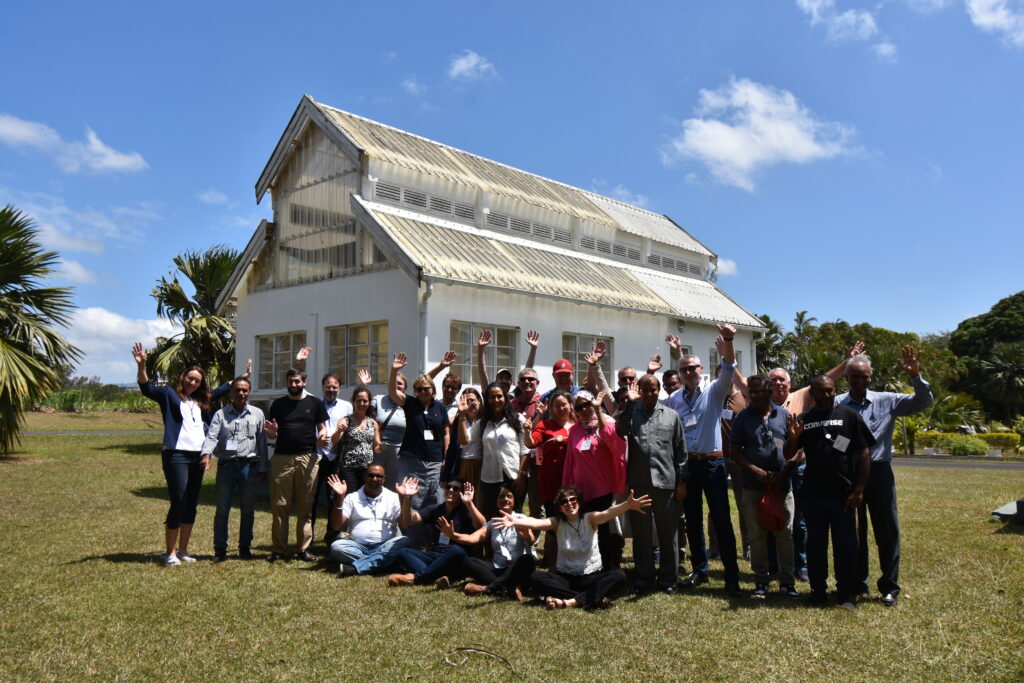
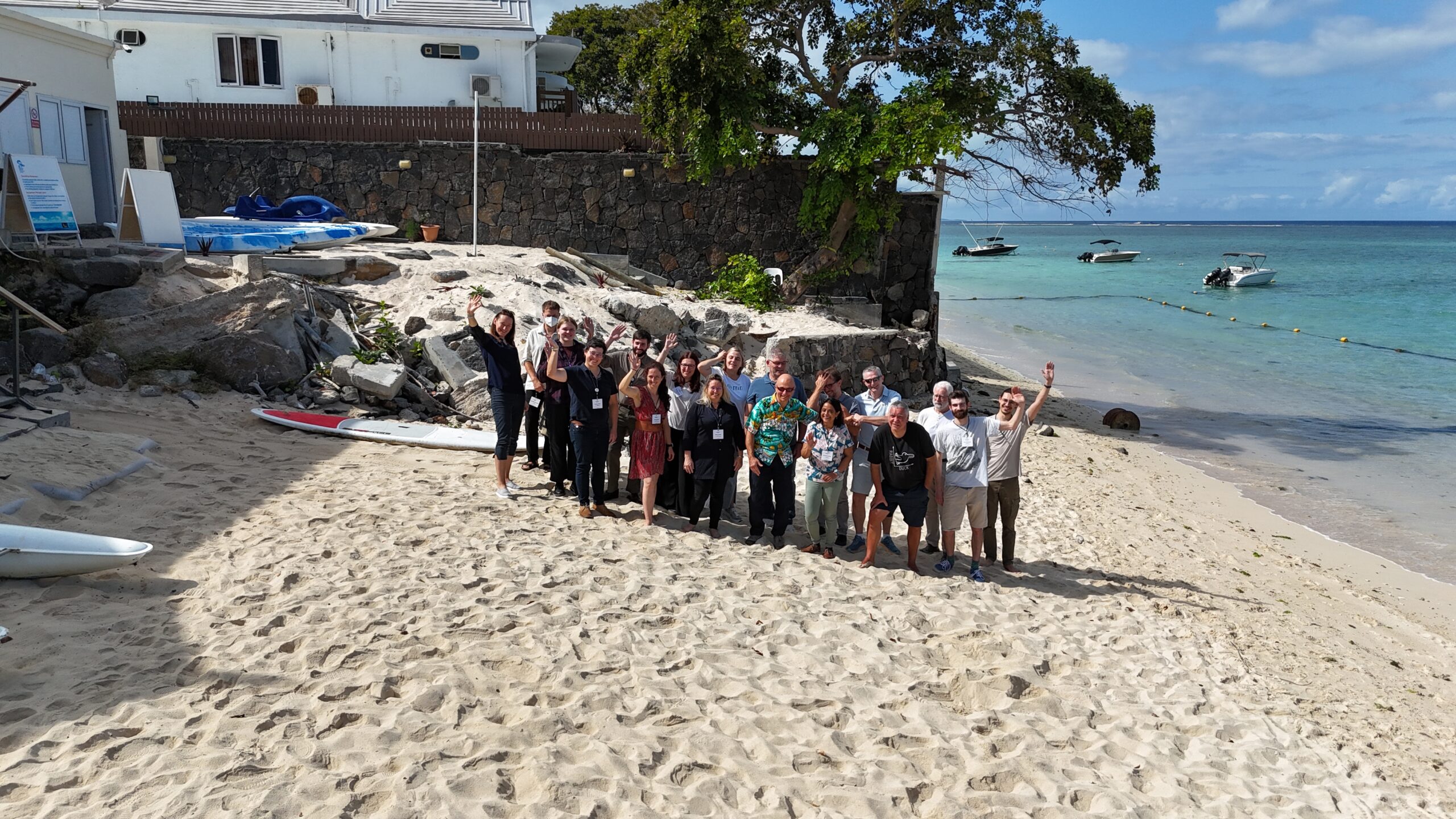
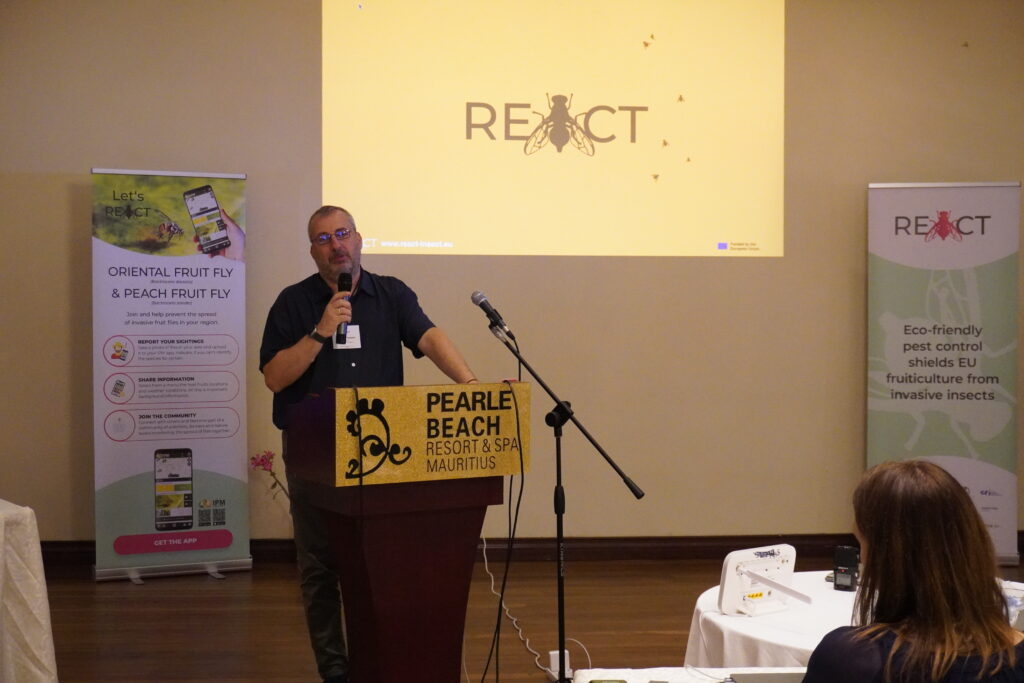
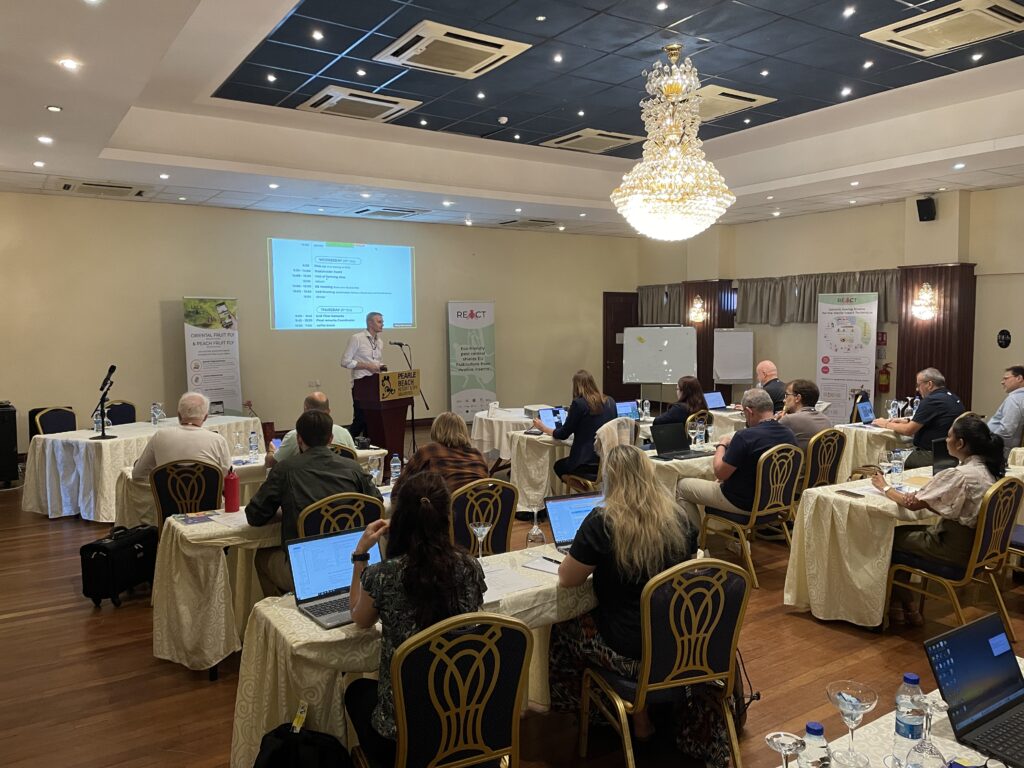
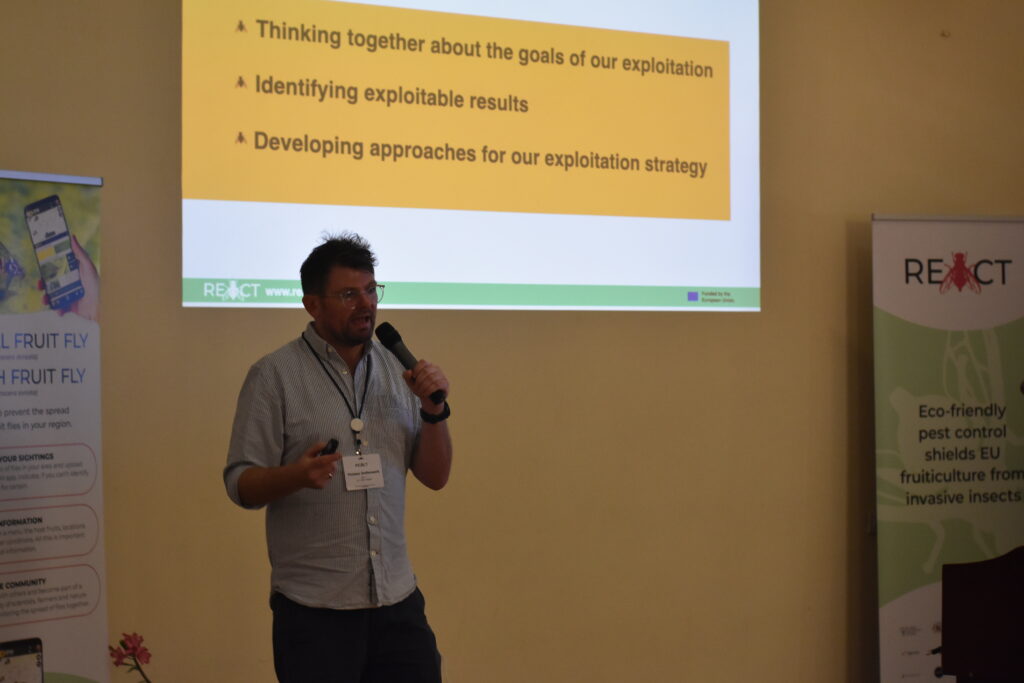
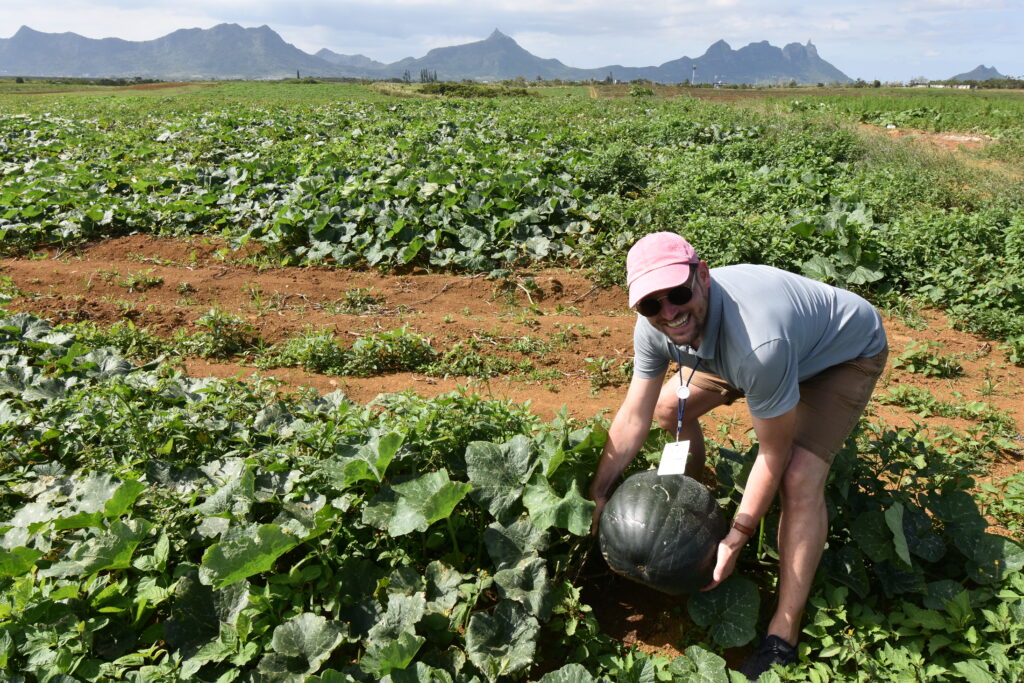
REACT Annual Meeting in Mauritius: Mid-term Summit in the Indian Ocean
14 Nov 2024
At the end of the second project year, REACT partners met in Mauritius. The island state uses SIT to control the fruit flies, which are at the project’s focus.
A beautiful sandy beach directly in front of the meeting room windows can distract you from your work. Fortunately, the windows remained closed at the REACT Annual Meeting, in order to keep the temperatures low and to keep focus up. The annual project meeting in Flic en Flac, Mauritius, was a milestone event for the participating partners of the EU-funded research and innovation action. From October 28 to November 1, 2024, experts, stakeholders, and project partners gathered to advance REACT’s mission to protect European agriculture from invasive fruit flies Bactrocera dorsalis and Bactrocera zonata through the Sterile Insect Technique (SIT).
,But why in Mauritius?’ one might wonder. The answer is quite simple: Here, on the island in the Indian Ocean, the fruit flies, which could spread to Europe as invasive species, can already be studied today. And also, Mauritius is home to a highly specialized facility for rearing and irradiating fruit flies, essential for advancing REACT’s Sterile Insect Technique (SIT) research and applications. Holding the meeting in Mauritius allowed REACT partners to directly engage with experts operating this advanced facility, discuss and observe cutting-edge techniques, and learn about regional pest management strategies already in use. The Mauritius setting provided an opportunity to witness sustainable pest management in action, benefiting REACT’s goals of reducing pesticide reliance while boosting ecological approaches to pest control.
Insightful Workshops and Active Discussions
The meeting opened with a welcome address by Project Coordinator Marc Schetelig, setting an optimistic tone for REACT’s second half. Representatives from all of the eight project work packages (WPs) presented updates on their work. The agenda balanced presentations with workshops, encouraging both theoretical and practical insights. Discussions underscored the environmental and economic impacts of fruit fly invasions, focusing on how SIT can be a sustainable alternative to pesticides in different agricultural contexts.
The progress made by the Greek REACT team in setting up a rearing facility and conducting field trials with MedFly (Ceratitis capitata) in recent months was met with keen interest by the members of the consortium and also by the members of the Stakeholder Advisory Board who had travelled to the event. After two years of work on the various areas of the project, the technical discussions within the consortium have not only become more in-depth in terms of content, but also more familiar and constructive.
A Field Visit Showcasing Technological Advances
One of the most anticipated events was the field visit to the Ministry of Agro-Industry’s Entomology Division in Reduit, where participants observed the work at the Fruit Fly Rearing Facility. Sookar Preeaduth, from the Ministry of Agro-Industry and Food Security, shared insights on their current projects:
“In areas where we are working, conventional techniques like bait application, mass trapping, and sanitation have reduced fruit fly infestation from 30% to less than 5%. Our facility can produce 15 million sterile flies per week, and by combining SIT with traditional methods, we aim to reduce pesticide use significantly. This protects both the environment and human health, allowing us to produce safe, high-quality fruits and vegetables.”
Preeaduth and the team also demonstrated a live fruit fly release. The Mauritius team’s efforts are aligned with REACT’s aim to reduce fruit fly-related agricultural losses, which currently cost Mauritius’ agricultural sector millions annually.
Exploitation: Towards a Greener, Safer Future
At the halfway point of the project, it is of course also important to look into the future of the project and beyond the end of the project. This was the subject of an interactive workshop dedicated entirely to the exploitation of the project results, i.e. the subsequent use of the results by the participating scientists themselves, or in the form of products, services or clear recommendations to politicians, for example with regard to the authorisation of SIT applications in Europe.
The exploitation workshop was designed to enable consortium members to maximize the project’s impact by identifying and prioritizing exploitable outcomes. Participants explored scientific, commercial, and political results with the goal of creating value through commercialization, licensing, or knowledge transfer. Structured in collaborative groups, the workshop focused on refining key outcomes and addressing essential questions about their future accessibility and relevance. Emphasis was placed on developing frameworks, like a GMO Policy for Europe and small-scale rearing facilities for invasive species, which could offer long-term benefits beyond the project. The workshop underscored a shift towards value creation, balancing ambitious goals with achievable strategies.
Stakeholder Advice and Community Engagement
Following the kick-off meeting in Giessen, Germany, and the annual meeting in Nafplio, Greece, it has now become the rule at the major REACT meetings that the last word of the meeting belongs to our colleagues on the Stakeholder Advisory Board (SAB). The board plays a vital role by providing external, expert perspectives that are crucial for maintaining the project’s alignment with real-world needs and scientific standards. This board, composed of experienced professionals from authorities, research institutions , and from SIT practice, ensures that REACT’s progress and methodologies are consistently reviewed and validated from a distant standpoint.
Through regular assessments, the SAB offers critical insights that help identify improvement areas, allowing REACT to adapt and optimize its methodology and strategies effectively. By incorporating feedback from the stakeholders and domain experts, REACT can refine its approach, particularly for complex applications like the Sterile Insect Technique (SIT), thereby enhancing the project’s overall impact on sustainable pest control across Europe.
The annual meeting concluded with a big thank you to project manager Evelyn Vollmeister and the team of the Ministry of Agro-Industry and Food Security for the organisation of the meeting and remarks from the project coordinator Marc F. Schetelig. He highlighted REACT’s progress and future directions. The project team left Mauritius with renewed energy, inspired by the insights gained and equipped to bring sustainable pest control solutions closer to European and global agriculture.
Lorem ipsum dolor sit amet, consectetur adipiscing elit. Ut elit tellus, luctus nec ullamcorper mattis, pulvinar dapibus leo.

